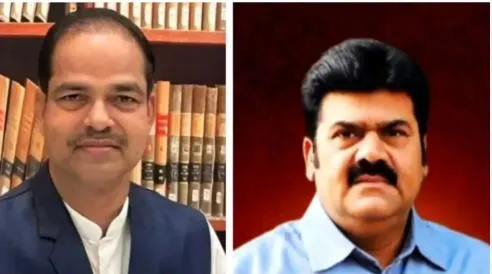

Berhampur, February 17: Former Berhampur MLA Bikram Panda, who was arrested in connection with Lawyer Pitabasa Panda murder case, has been hospitalized once again.
Panda was rushed to MKCG Medical College and Hospital in Berhampur late at night on Tuesday after he complained of acute chest pain and intolerable cramp in his belly.
Under tight security, Panda was escorted to the MKCG facilities.
After registration, a team of doctors examined Panda’s health condition and advised a few tests, essential for treatment.
Comments of attending doctors and the jail authorities are awaited.